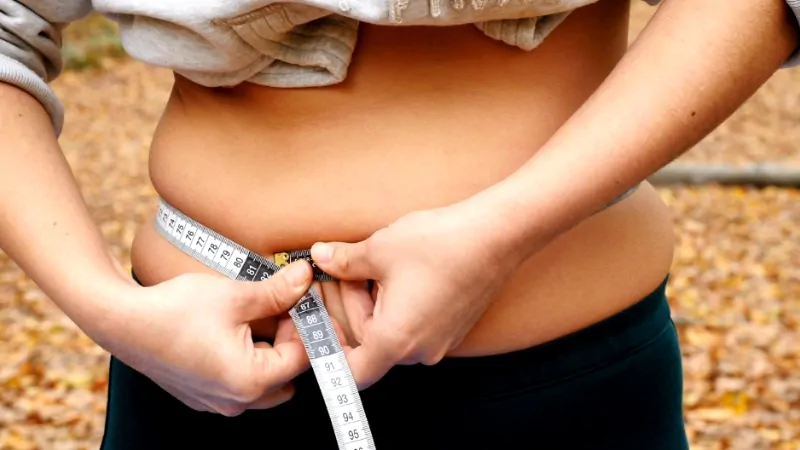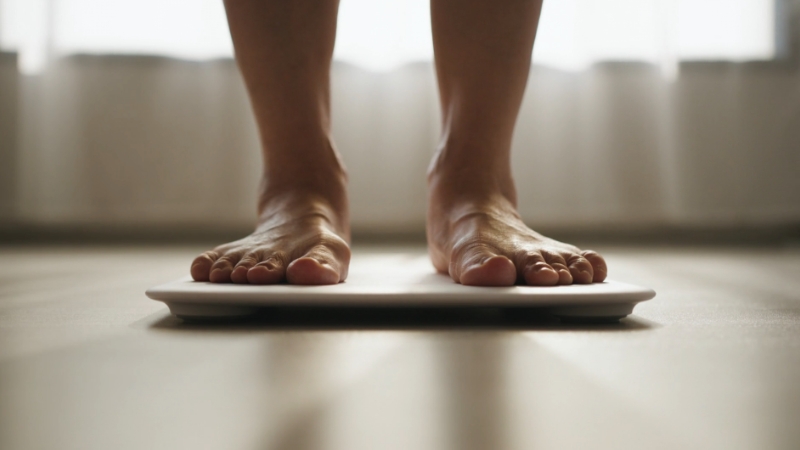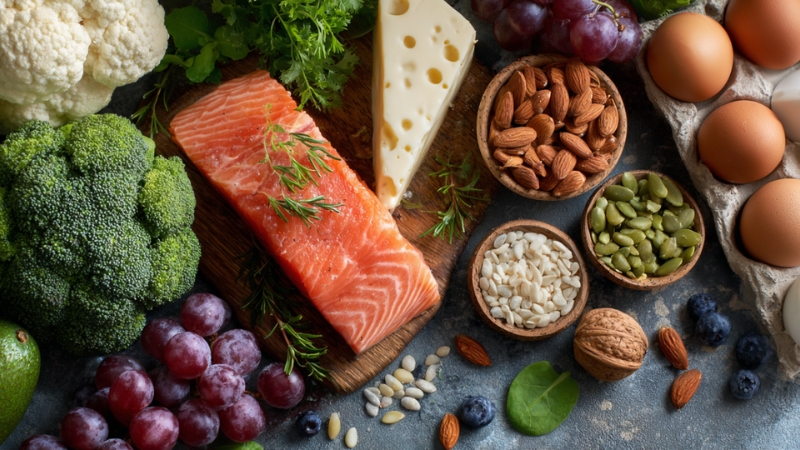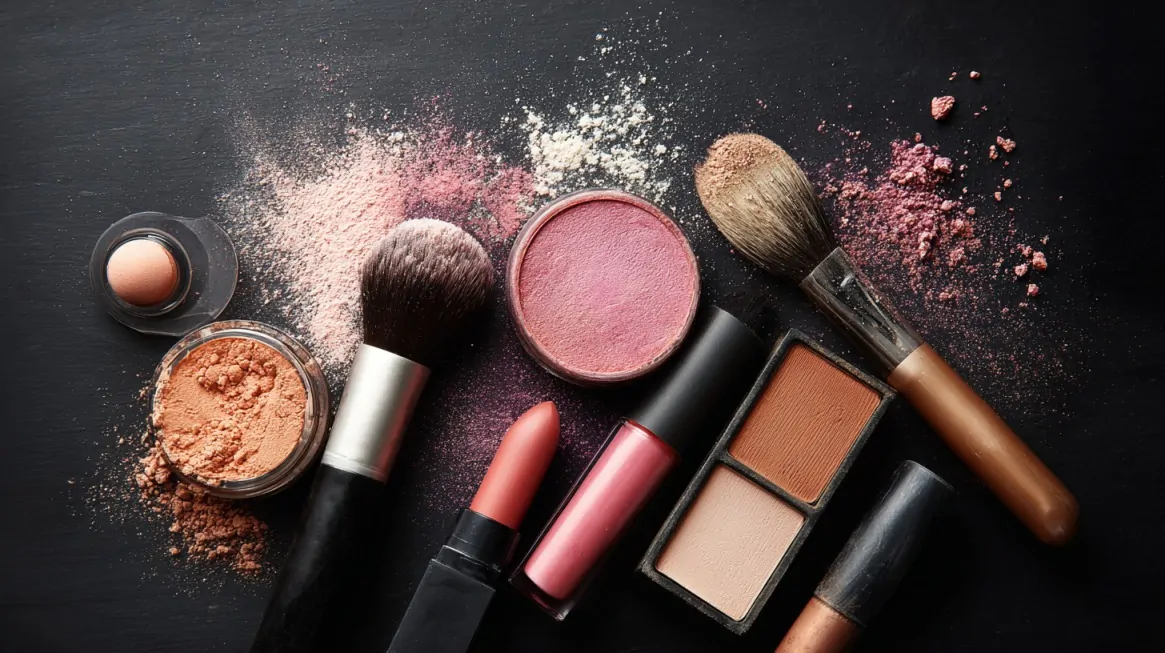
Share Post:
So you’re eating clean — loading up on greens, skipping the late-night snacks, steering clear of processed junk — and yet, the scale keeps creeping up.
Frustrating doesn’t even begin to cover it. You’re not alone, and no, you’re not doing anything wrong. Weight gain during menopause isn’t just about food.
Hormones, sleep, stress, muscle loss — it’s all tangled up together.
Here’s the short version: during menopause, your body shifts how it handles fat storage, muscle maintenance, and insulin, and those changes make it easier to gain weight and harder to lose it, even when your diet’s on point.
Let’s break it down and talk about real strategies that help.
Table of Contents
ToggleHormones Take the Wheel – Whether You Like It or Not
Menopause isn’t just about hot flashes and skipping periods. It’s a hormonal earthquake, mainly thanks to dropping estrogen levels. Estrogen plays a big role in how your body regulates fat storage and uses insulin.
When estrogen drops:
- Fat storage patterns change. You might notice more weight piling up around your belly. That’s because estrogen is sed to help direct fat to the hips and thighs (which, annoying as it might’ve been, is metabolically safer). With lower estrogen, your body leans more toward abdominal fat, which is trickier to lose and linked to insulin resistance.
- Your resting metabolism slows. Less estrogen means less muscle maintenance. Fewer muscles means you burn fewer calories just existing. Not a huge difference daily, but it adds up.
- Insulin sensitivity can drop. Meaning your body’s less efficient at processing carbs, and more likely to store them as fat.
Bottom line? You could be eating the same meals you were five years ago, and still gain weight now.
“Eating Clean” Isn’t Always Enough

Let’s say your fridge is full of spinach, salmon, quinoa, and Greek yogurt. You’re avoiding processed food, barely touching sugar, and you meal prep like a champ.
That’s awesome — and it matters for health, but clean eating alone doesn’t address the whole menopause weight game.
Here are a few reasons why:
1. You Might Not Be Eating Enough Protein
Protein isn’t just for gym bros. As you lose estrogen, you also lose lean muscle mass. Muscle burns more calories than fat, even when you’re watching Netflix. So holding on to muscle is key.
You’ll need more protein now than you did at 30 to get the same effect. Not crazy amounts, just more consistent intake across the day.
Try this:
Meal
Protein Goal
Breakfast
25-30g
Lunch
25-30g
Dinner
25-30g
Snack (optional)
10-20g
Great sources? Eggs, chicken, tofu, lentils, Greek yogurt, protein powder, tempeh, fish.
2. Portions May Need a Tweak
You might not be overeating in a binge-y way. But your calorie needs do shift with age and hormone changes.
If you’re eating the same portion sizes you did ten years ago, especially carbs and fats, you might be slightly overshooting what your body needs now.
It’s not about restriction. It’s about recalibration. Think of it like adjusting your dog’s food as they age and become less active. Same concept, less output, less input required.
3. Hidden Calories Creep In
Even clean eaters can rack up sneaky extras:
- Handfuls of nuts while cooking (healthy, but calorie-dense)
- Olive oil in the pan, then more on the salad
- A couple of squares of dark chocolate that turn into five
You don’t need to obsessively track, but a three-day food journal (just written in your Notes app) can reveal patterns you didn’t notice.
Stress and Sleep: The Weight Gain Sleepers
View this post on Instagram
A post shared by Joseph Munoz Ph.D. | Fitness Coach and Educator (@dr.joeymunoz)
No pun intended. But actually, chronic stress and poor sleep can mess with your weight more than you’d think.
Cortisol Isn’t Just a Buzzword
Cortisol, the stress hormone, plays a big role in fat storage, especially around the midsection. It ramps up when you’re juggling work, aging parents, teenagers, perimenopause chaos, and sleep deprivation adds fuel to that fire.
High cortisol can:
- Increase cravings (especially for carbs and sugar)
- Make your body hold on to fat
- Break down muscle tissue
That means you could be eating perfectly and still struggle, purely because your body is running in emergency mode.
Tips that Help with Cortisol
- Walking outside for 20 minutes daily (bonus if you leave your phone behind)
- Going to bed before 11 PM — consistently
- Limiting caffeine after noon (yep, even if you swear it doesn’t affect your sleep)
- Short meditation or deep breathing apps — even 5 minutes helps
Exercise Needs to Look Different Now
@nikiwibrowfitness Exercise during menopause, what shpuld we do? Some of my top tips exercising during menopause #menopausalwomenoftiktok #homeworkoutsforwomen #homeworkouts ♬ Like This – R.A.E
If you’re still relying on cardio alone — long walks, spin class, the occasional jog — your body might not be getting what it needs anymore.
Muscle is Your Secret Weapon
Strength training is non-negotiable if you want to maintain (or rebuild) muscle during menopause. More muscle = better metabolism = easier weight management.
You don’t have to start deadlifting 200 pounds. But you do need to challenge your muscles 2–3 times a week. That could mean:
- Dumbbells or kettlebells
- Resistance bands
- Bodyweight workouts (think squats, push-ups, planks)
- Pilates with resistance work
Not All Cardio Is Equal
Endless cardio can sometimes backfire — spiking cortisol, breaking down muscle. But that doesn’t mean you should stop moving.
Better choices:
- Shorter, more intense sessions (like 20-minute intervals or circuits)
- Walking daily (yes, still counts — especially for stress)
- Yoga or mobility work to help with recovery
The Sleep-Metabolism Connection Is Real

Poor sleep messes with your hunger hormones (ghrelin and leptin), increases cravings, slows recovery, and yep — makes it easier to store fat.
If you’re consistently sleeping less than 6–7 hours, your body’s working against you.
Quick sleep check-in:
Habit
Worth Trying
Same bedtime/wake time daily
Yes
Cool, dark room
Yes
No phone in bed
Yes
Magnesium glycinate before bed
Yes
No wine within 3 hours of sleep
Yes (sorry, but it wrecks sleep stages)
Sleep’s underrated. Fixing it often leads to results that diet alone couldn’t touch.
Beware the Menopause Marketing Hype
There’s a growing market of “miracle” menopause weight loss supplements, detox teas, or hormone-reset cleanses. Most of them are garbage — or worse, harmful.
Real talk: there’s no magic bullet. There are some legitimate options, like working with a doctor on HRT (hormone replacement therapy) if it’s appropriate for you, but pills and powders that promise “weight loss in 10 days” are usually a scam.
If something claims to fix your hormones, blast fat, and cure bloating all at once? Raise an eyebrow.
What Works

If you take nothing else away, let it be this: menopause weight gain isn’t a personal failure, and you’re not “doing it wrong.”
Here’s a recap of what helps:
1. Prioritize Protein + Muscle
- 25–30g protein per meal
- Strength training 2–3x per week
2. Check in With Your Portions
- Track for a few days to see patterns
- Be mindful of oil, nuts, sauces, etc.
3. Move Daily, with Variety
- Mix walking, strength, and mobility
- Don’t overdo long cardio
4. Dial in Sleep + Stress
- Sleep 7+ hours consistently
- Use stress-reduction tools that work for you
5. Stay Skeptical of Fads
- No miracle tea or powder is going to fix this
- Long-term consistency beats quick-fix nonsense
Final Thought: You’re Not Broken
Understanding menopause weight gain 💪https://t.co/cfitbtmcEM
— Joe Wicks (@thebodycoach) August 28, 2024
If your dog started gaining weight as they got older, you wouldn’t panic or assume they were lazy. You’d adjust their food, check their activity, maybe run some tests, and give them a little grace. Your body deserves the same compassion.
Menopause is a wild ride. But you can feel strong, stable, and healthy on the other side of it. You just need the right tools and permission to stop blaming yourself.
Want to talk more specifics? Grab a notebook, jot down a few goals, and start where it feels doable. One small change at a time. That’s the real secret.
Related Posts:
- Healthy Weight vs. Ideal Weight - What’s the Real…
- Can You Leave Olaplex 3 On Overnight? You Might Be Suprised…
- What To Eat While Breastfeeding To Support Energy,…
- How to Keep a Skincare Routine Strong During Family…
- Restless Legs Syndrome And Menopause: 9 Ways To Treat RLS
- Histamine and Menopause - Can Antihistamines Help…








